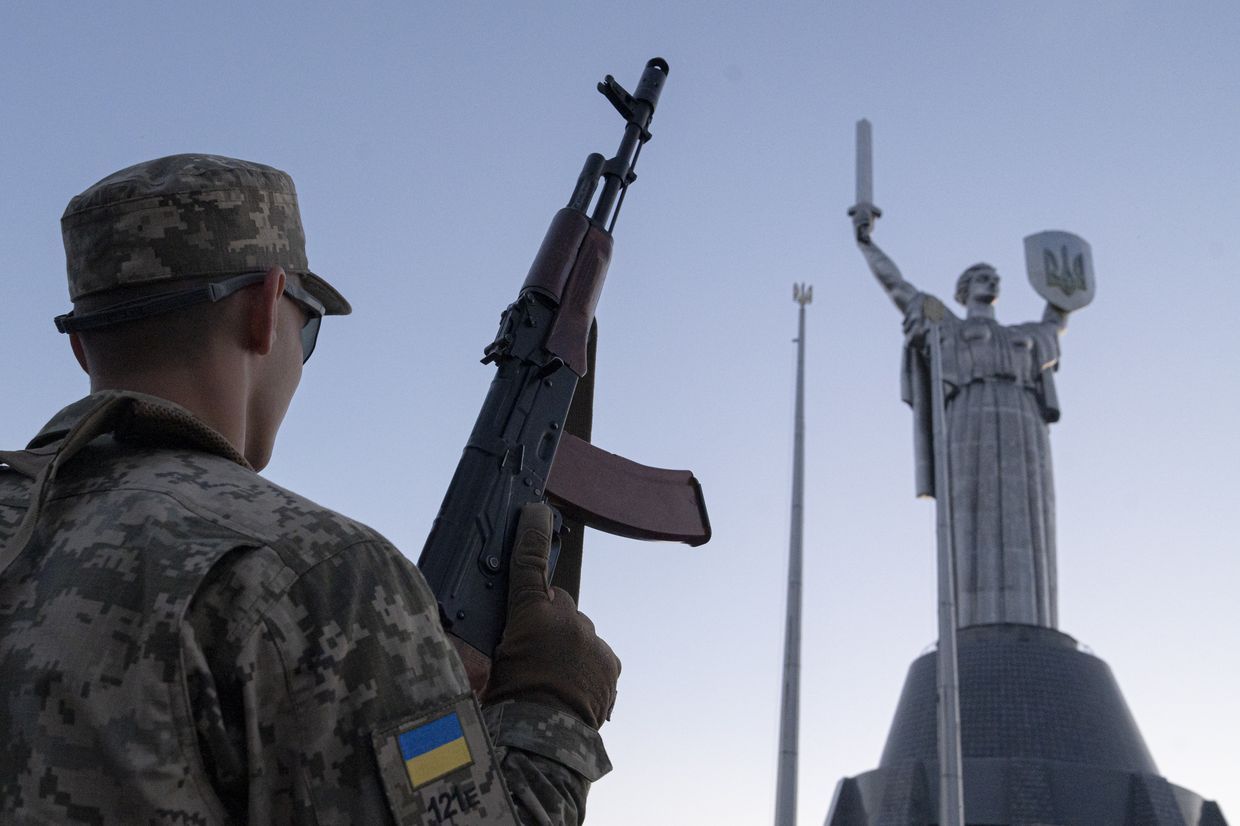As Russia continues to bombard cities and towns across Ukraine, Russian officials have hardened their position against a ceasefire, continuing to repeat the obscure demand that the war’s "root causes" be addressed before agreeing to any truce.
For months, the phrase "root causes" has become a go-to talking point repeated by Russian President Vladimir Putin and his deputies, including Russian Foreign Minister Sergey Lavrov, to justify their continued aggression.
"In (Russia’s) telling, they ascribe these root causes to an aggressive West," said Robert Person, an expert on Russian foreign policy and a member of the Council on Foreign Relations (CFR).
"The most concrete thing that you’ll hear, when they’re talking about the root causes that they refer to, is the enlargement of NATO."
Russia has named the alleged threat from NATO in its attempts to justify its invasion of Ukraine, among other reasons, and has demanded that a peace agreement include a ban on Ukraine ever joining the alliance.
But Russia’s framing is a red herring, Person and other experts argue.
"What Putin is after in Ukraine and beyond is not just a rollback of the prospect of NATO membership. It’s not about securing Ukraine’s neutrality," he said. "It’s really about turning Ukraine into a subservient vassal state with a puppet government that does his bidding."
The false narratives serve a useful purpose for Russia’s government, however, said Mercedes Sapuppo, assistant director in the Atlantic Council’s Eurasia Center.
"When Putin discusses the 'root causes' of his war, he is calling up a framework that he claims justifies Russia's aggression in Ukraine by falsely placing blame on Ukraine," said Sapuppo. "Putin and the Kremlin are using these narratives to frame Ukraine as the instigator of the Kremlin’s war."
Even U.S. President Donald Trump has bought into the idea, saying as recently as last month, "I think what caused the war to start was when (Ukraine) started talking about joining NATO."
NATO: a ‘nonsensical’ explanation for the war
Alongside NATO expansion, Russia has at times named additional reasons for its invasion — including propaganda claims of Nazi extremism, and protecting the status of Russian language speakers or the Moscow Patriarchate of the Russian Orthodox Church — but it has placed outsized emphasis on NATO.
In 2018, Ukraine enshrined its goal of NATO membership in its constitution and has since argued that membership in the security alliance is needed in the future to deter further Russian aggression.
Yet the idea that NATO is the root cause of this conflict is "nonsensical," said Stephen Hall, assistant professor in Russian and post-Soviet politics at the University of Bath.
"It’s a narrative that’s pushed by the Kremlin to try and get so-called 'useful idiots' to play it up in the media and elsewhere."
One sign that Putin’s concerns go beyond NATO, notes Hall, is the limited resistance that Russia put up when Poland joined NATO in 1999 and when Lithuania, Latvia, and Estonia followed in 2004 — four countries that share a border with Russia.
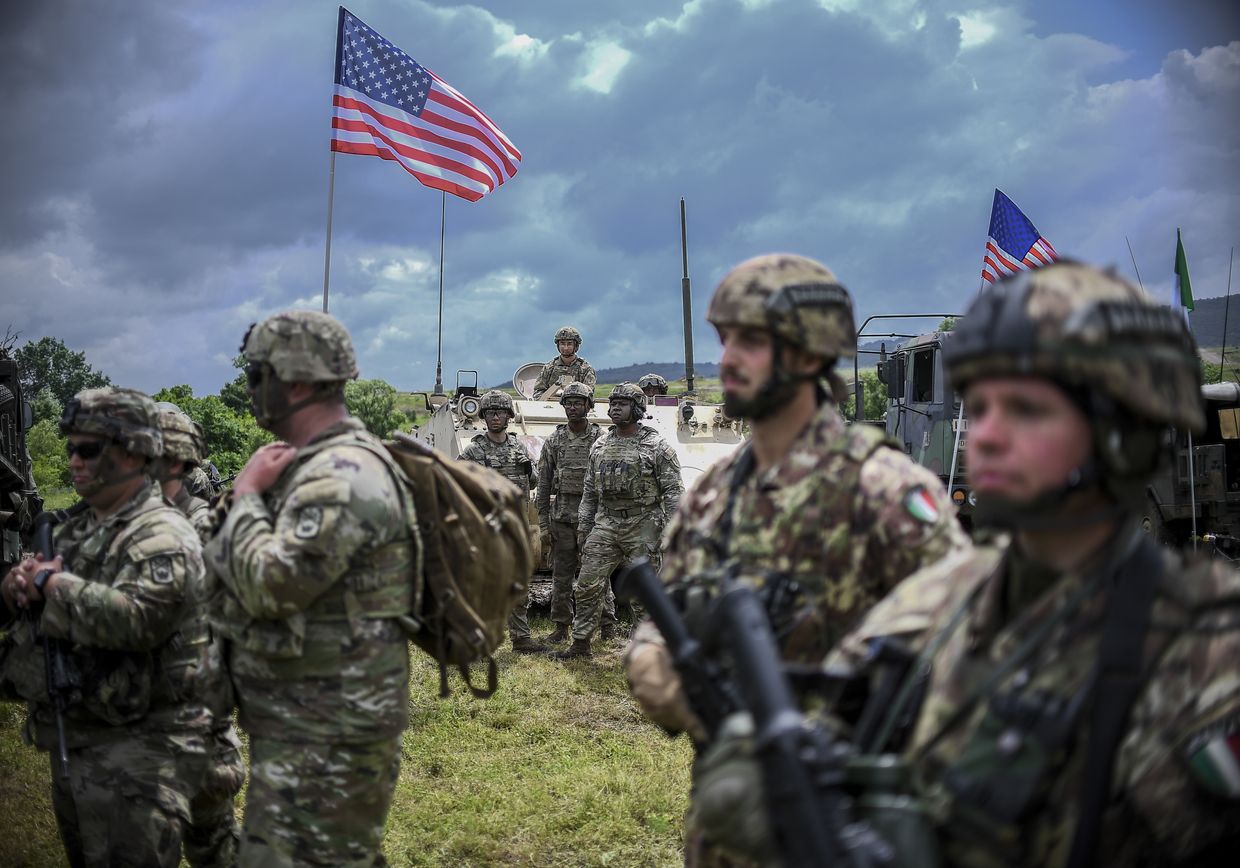
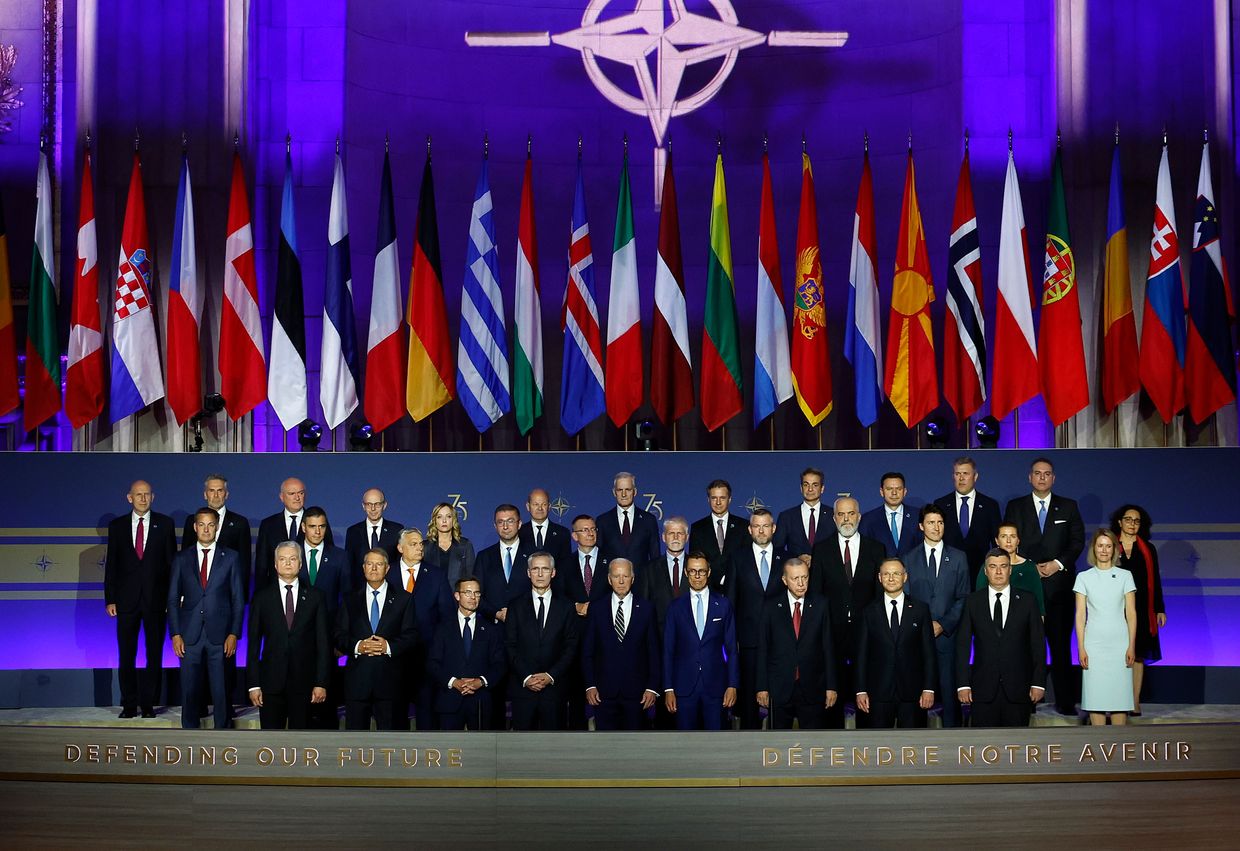
"Then fast forward to when the state with the longest border (in NATO) with Russia, Finland, joins in 2023. There’s barely a peep from Moscow," he added.
While NATO is relevant, it is only in highlighting to Putin that Ukraine is slipping away from Russian influence, Hall said. Additionally, if Ukraine were to make independent decisions based on the will of its people, it could send a signal to Russian citizens that democracy is a viable option for them, as well.
"That, obviously, is a problem for Putin’s autocracy, or any autocracy for that matter," Hall said.
"It’s very clear that the root cause for him, really, is just Ukraine’s existence."
Before Russia’s 2014 invasion, the idea of NATO membership was deeply unpopular with Ukrainian citizens, with only around 15 to 20% of Ukrainians supporting it at the time.
Since Russia’s invasion, however, support has skyrocketed. According to a poll last year by the Kyiv International Institute of Sociology, 84% of Ukrainians would like to see their country join NATO.
Evidence that NATO is a smokescreen for Putin’s motivations is seen not just in how Putin treats other NATO members, but also how it has treated Ukraine for decades, Person of CFR said.
"For over twenty years, Putin has very aggressively been targeting Ukrainian sovereignty and Ukrainian democracy," Person said, citing Putin’s interference in Ukraine during the 2004 Orange Revolution as an example.
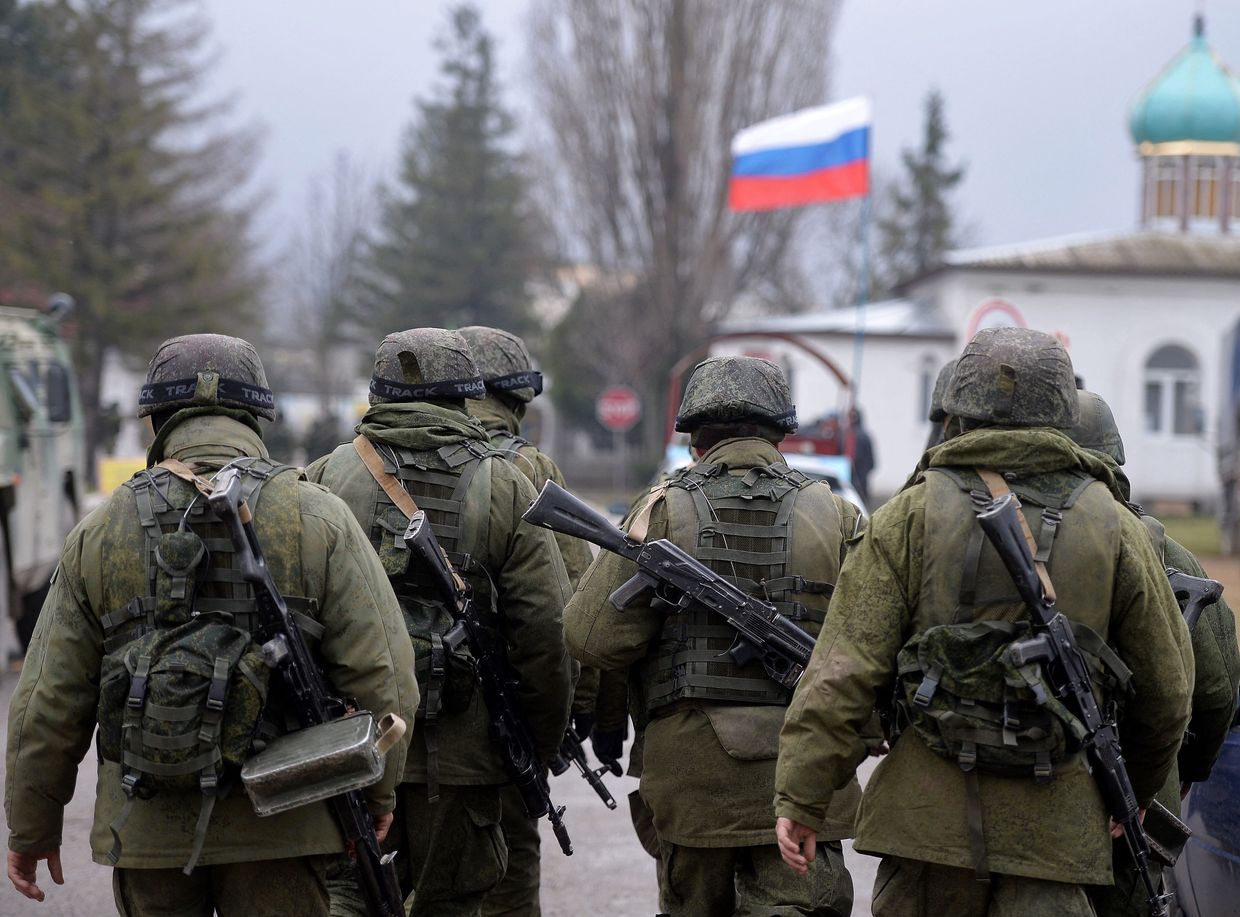
In the lead-up to the Orange Revolution, Putin heavily promoted pro-Russian candidate Viktor Yanukovych ahead of the 2004 presidential election, including visiting Ukraine to push his preferred candidate. His attempts to interfere with Ukraine’s politics prompted a backlash, helping to spark protests over a rigged election that resulted in Yanukovych’s defeat.
"Then in 2014, when Russia invaded Crimea, when they invaded the Donbas, membership in NATO was nowhere on the immediate agenda — for NATO or Ukraine. There was a constitutional provision at the time that prohibited it, and required neutrality," Person noted. "How does that somehow spark or cause the Russian invasion of 2014?"
What this means for peace negotiations
Sapuppo, of the Atlantic Council's Eurasia Center, says understanding Putin’s motivation for the war is necessary for informing the West’s strategies for negotiations with the Russian leader.
"It’s very clear that the root cause for (Putin), really, is just Ukraine’s existence. This should make it clear to Western leaders that any agreements to end the war need to be very forward-looking when it comes to security guarantees," she said.
If Western leaders were to fall into the trap of focusing on NATO limitations, this would not only fail to address the true reasons for the invasion, but would also allow Russia to establish a revisionist history, she said.
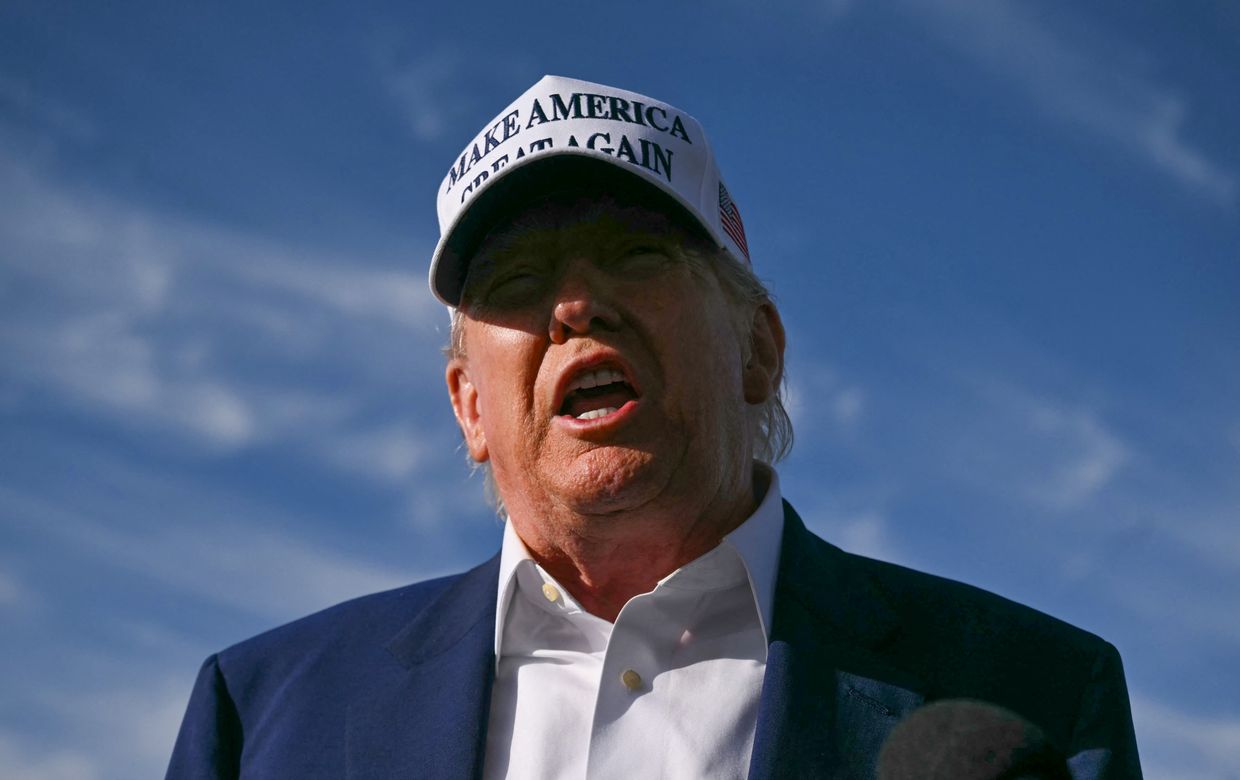
But recognizing the underlying motives for Russia’s invasion also means recognizing that they are far more difficult to solve than a question of neutrality, Person added.
"You could draw lines on a map all day long. No line, unless it incorporates, at least all of Ukraine up to and including Kyiv and its government, is going to satisfy Putin’s demands," he said.
"At the end of the day, what Putin cannot tolerate is a sovereign Ukraine that chooses its own foreign policies and partnerships, its own economic relationships."
Note from the author:
Hi, this is Andrea. Thank you for reading this article. The Kyiv Independent doesn't have a wealthy owner or a paywall. Instead, we rely on readers like you to keep our journalism funded. We're now aiming to grow our community to 20,000 members — if you liked this article, consider joining our community today.
